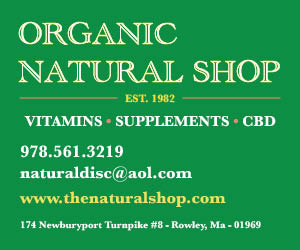Xylitol is a naturally occurring sugar alcohol that is commonly used as a sweetener in many products, such as chewing gum, toothpaste and nasal spray. Xylitol kills bacteria by disrupting their ability to metabolize glucose, which is a necessary process for their survival. When bacteria consume xylitol instead of glucose, they are unable to use it effectively as a source of energy, leading to a depletion of their energy stores and eventual death.
The dental benefits of xylitol have been known since the 1970’s. Xylitol is not metabolized by the decay-causing bacteria Streptococcus mutans (S. mutans), making it non-acidogenic and thus noncariogenic (not decay causing). Studies have also indicated xylitol decreases the levels of S. mutans in both plaque and saliva. As a result, patients who use xylitol have demonstrated a reduction in decay.
Xylitol is slowly absorbed by the human intestines; as a result, it has minimal side effects on humans. There are some minor side effects, mainly diarrhea, although this generally occurs after ingesting large amounts xylitol (four to five times the recommended amount for cavity prevention). A 1982 study suggested that the body can adapt to higher dosages of xylitol and that symptoms can subside as the body’s tolerance increases. However, even in small quantities, xylitol is toxic to dogs.
While the dental community embraces xylitol for its cavity prevention, most people, including dental professionals, are unaware of its toxic potential to dogs. While xylitol has little effect on insulin production in humans, dogs can experience rapid and severe increase in insulin production after just a small amount of xylitol ingestion. A dog that ingests a xylitol equivalent of three to four pieces of gum is at risk for hepatic (liver) failure and necrosis (tissue death).
Dogs tend to be scavengers by nature and their likelihood of encountering potentially toxic substances in and around the house is common. The ASPCA web site lists a multitude of substances, many of which are harmless to humans but potentially dangerous to dogs. Chocolate, grapes, raisins, avocado, onion, and citrus fruits make the list. However, xylitol is unique in that it is contained within foods; as a result, consumers may not even be aware that a product or food item contains xylitol.
For dogs suspected of ingesting xylitol, early intervention is paramount. Prompt medical treatment for uncomplicated xylitol-related hypoglycemia can yield a good prognosis. Xylitol hepatic toxicosis yields a much graver prognosis.
While veterinarians have been aware of the potential danger of xylitol to dogs for several years, that awareness has escaped most of the dental community – and the general public. This has become a more significant issue as more dental professionals promote products that contain xylitol for its human benefits.
It is important for dog owners to know the different foods and products, such as xylitol, that can be harmful to their pooches. Make sure to keep these items out of a dog’s reach – and that includes the garbage. If you suspect ingestion of any of these foods, including xylitol, contact your veterinarian immediately.
Dr. St. Clair maintains a private dental practice in Rowley dedicated to health-centered family dentistry. He has a special interest in treating snoring, sleep apnea and TMJ problems. If there are certain topics you would like to see written about or questions you have please email them to him at jpstclair@stclairdmd.com
Brighter Smiles: XYLITOL + DOGS = BAD
Tuesday March 14, 2023



